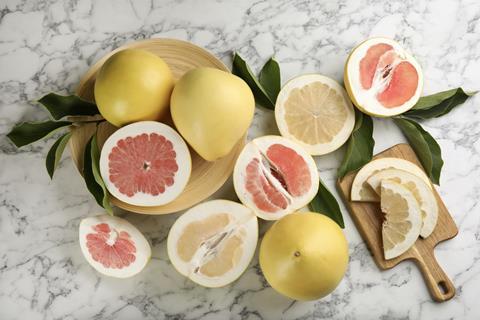Industry body raises concerns about canker prevalence in Vietnam’s pomelo-growing regions and calls for full biosecurity import risk assessment

Citrus Australia has called on the country’s minister for agriculture and the Department of Agriculture, Fisheries and Forestry (DAFF) to pause the market access application for pomelo from Vietnam, citing biosecurity risks that ”require further scientific assessment”.
Chief executive officer Nathan Hancock said the industry strongly supports mutually beneficial trade and recognises the importance of open, rules-based market access.
However, he stressed that Australia’s biosecurity must not be compromised.
“Trade only works when both countries can be confident that pests and diseases are properly managed,” said Hancock. “In this case, the evidence shows a significant and unmanaged biosecurity risk.”
Citrus Australia has raised concerns that citrus canker is “endemic” across Vietnam’s major pomelo-growing regions, and that packed fruit is a recognised pathway for the spread of what is a highly infectious disease.
Historically, Australia has only accepted fruit from production areas where citrus canker is demonstrably absent or at very low prevalence.
Hancock said this long-standing approach protects Australia’s A$1.1bn citrus industry and the regional communities that rely on it.
Citrus Australia said its initial 2024 submission, along with submissions from several other organisations, and a follow up submission in 2025 ”clearly identified” these risks and should have triggered a technical review under established biosecurity processes.
“Despite the strength of evidence presented, our request for a formal technical review was declined,” Hancock continued. “We have now escalated our concerns to the minister and are asking for the risk to be appropriately assessed.”
Citrus Australia urged the government to establish a scientific advisory group as part of a full Biosecurity Import Risk Assessment (BIRA) to ensure that all available science, surveillance data and real-world risk pathways are thoroughly examined.
“Australia cannot afford to take unnecessary risks with citrus canker,” noted Hancock. “We are confident that a clear, science-based review is the right path forward for both countries. This is not about stopping trade; it is about ensuring trade is safe.
“Maintaining rigorous biosecurity standards at the border is crucial to ensuring the high quality of our produce and profitability of our sector.”
Citrus Australia said it remained committed to working constructively with DAFF, government agencies and trading partners to maintain robust biosecurity outcomes while supporting sustainable export growth.



